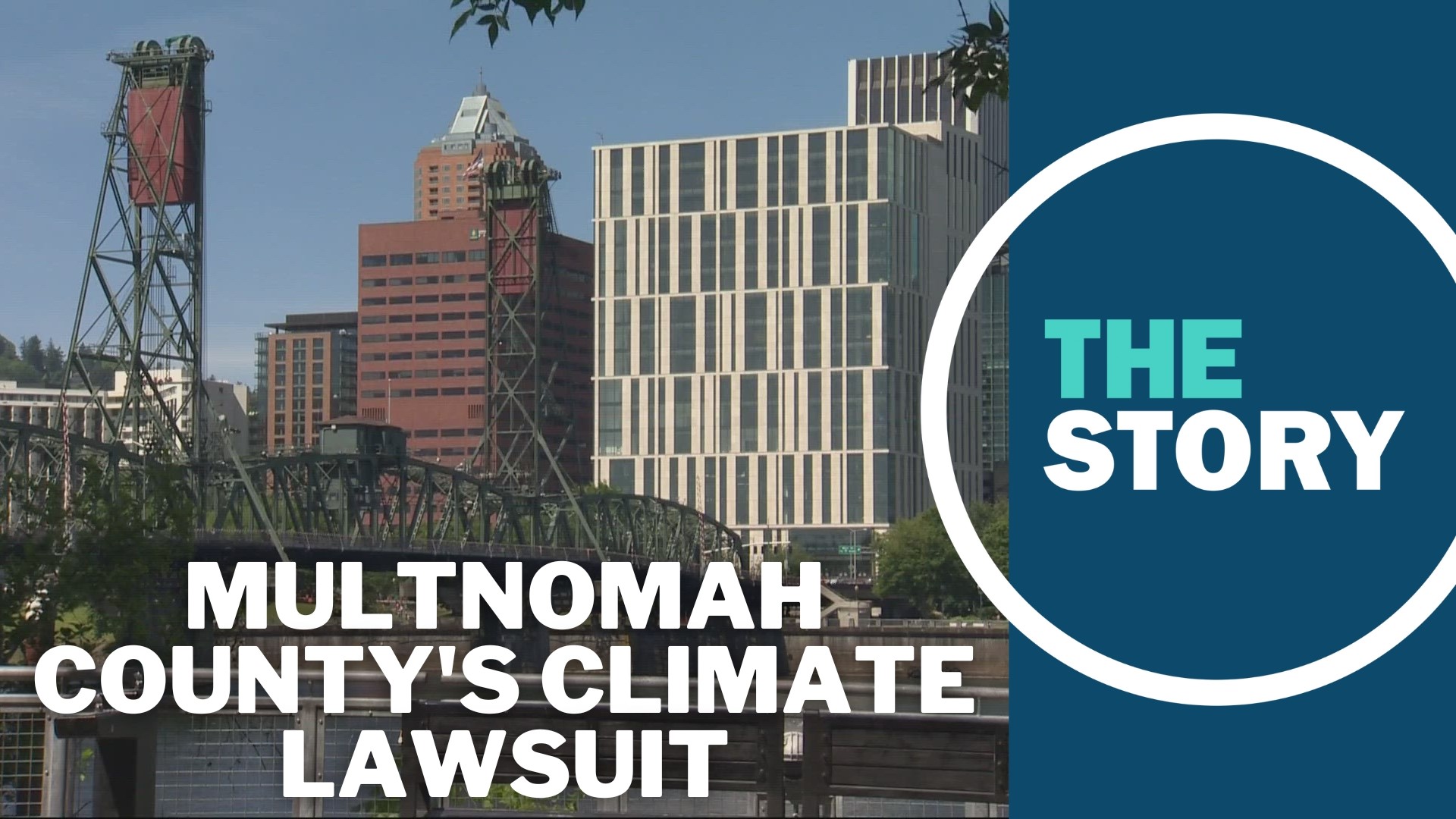PORTLAND, Ore. —
Last month, Multnomah County filed a lawsuit seeking more than $50 billion in damages from 17 of the world’s largest fossil fuel companies and organizations.
The lawsuit alleges that the companies are responsible for climate change, which led to the 2021 heat dome, which saw temperatures spike to 116 degrees in Portland. At least 69 people died in Multnomah County and hundreds more were hospitalized.
Dozens of similar cases have been filed by cities, states and counties seeking to hold the fossil fuel industry accountable for extreme weather events that have been exacerbated by climate change.
But Jeffrey Simon, one of the attorneys representing the county, said this case has some key differences.
“There is always some argument about whether or not one can or cannot scientifically mete out ‘What is the role of carbon pollution here?’” Simon said. “The Pacific Northwest heat dome of June 2021 is entirely different because it is irrefutably, scientifically caused by carbon pollution.”
Simon is referring to a number of attribution studies released after the heat dome. One found that extreme temperatures seen across the Pacific Northwest would have been “virtually impossible” without the effects of carbon dioxide in the atmosphere, most of which come from burning fossil fuels.
The researchers found that the heat dome would have been 150 times less likely to have occurred without the influence of climate change.
Simon said the attribution studies amount to as close to a smoking gun as has been presented in climate litigation.
“It is irrefutable that the intensity of that storm, that heat blocking event, was greatly intensified by carbon pollution and therefore much more deadly and destructive,” he said.
Lisa Benjamin, an environmental law professor at Lewis and Clark College and an expert on climate litigation, said the attribution studies set this case apart.
“The Holy Grail you want of causation is to say that this particular emission by this particular company caused this particular harm in this particular state or county or city,” Benjamin said. “Multnomah County has this very specific attribution study that says that these impacts, deaths and the costs of climate change would have been virtually impossible without anthropogenic climate change.“
KGW reached out to all 17 defendants: Exxon, Shell, Chevron, BP, ConocoPhillips, Motiva, Occidental Petroleum, Space Age Fuel, Valero Energy, Total Specialties, Marathon Petroleum, Peabody Energy, Koch Industries, the American Petroleum Institute, the Western States Petroleum Association and McKinsey and Company. Most defendants did not respond.
Several said they were unable to comment on a pending lawsuit, but a few sent over statements saying they all agreed that action on climate change was imperative, but that a lawsuit was the wrong way to go about it.
“Addressing the challenge of global climate change requires a coordinated policy response,” Theodore J. Boutrous, Jr., a lawyer for Chevron, said in a statement. “These lawsuits are counterproductive distractions from advancing international policy solutions.”
A spokesperson for Shell echoed those sentiments, saying the company fully supports “the need for society to transition to a lower-carbon future,” but that a lawsuit was not the right avenue to pursue that goal.
“We do not believe the courtroom is the right venue to address climate change, but that smart policy from government and action from all sectors is the appropriate way to reach solutions and drive progress,” the spokesperson said.
Benjamin noted that the Multnomah County lawsuit does not seek a change in policy.
“That's not what Multnomah is doing here,” she said. “They're asking for damages in the cost of abatement moving forward.”
Simon said the county is seeking $50 million in direct damages from the heat dome itself, including health care costs and damage to infrastructure. The county is also asking for a $50 billion fund to pay for upgrades that will be needed to upgrade the county’s response as similar heat events become more common.
“We unfortunately have to reimagine the infrastructure of Multnomah County to withstand that kind of heat, for which it was never built, it was never constructed,” Simon said. “It's not Phoenix, right? But now it has to be as heat resistant as Phoenix.”
The lawsuit also seeks an additional $1.5 billion for damage incurred before those upgrades can be implemented.
Previous lawsuits have often been long delayed, often for years, as fossil fuel companies have argued that, because pollution is regulated by the Environmental Protection Agency, these types of cases should be tried in federal court.
But the Supreme Court ruled earlier this year that lawsuits alleging violations of state law, as the Multnomah County case does, can and should be tried in state court.
From Benjamin’s perspective, the lawsuit seeks to recoup some of the money paid out by the people harmed by the heat dome, many of whom are often the least able to afford it.
“These are rural communities, where it's harder to get to hospitals and health. They're the elderly. They're children. They're Black and brown communities,” she said. “These are communities that can least afford to pay the cost of climate change and yet are subsidizing the activities of these corporations.”

